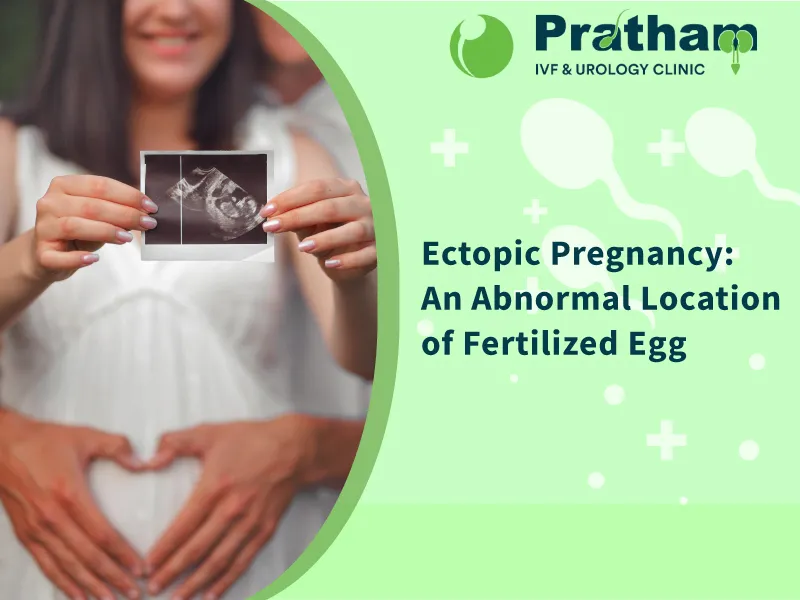
Ectopic Pregnancy
An ectopic pregnancy happens when a fertilized egg implants outside the uterus, most commonly in the fallopian tubes, leading to a tubal pregnancy. In rare situations, it might affect the ovaries, cervix, or abdominal cavity. Since these areas cannot sustain a growing embryo, an ectopic pregnancy poses serious health risks and requires immediate medical attention. Common causes include pelvic infections, previous surgeries, hormonal imbalances, and structural abnormalities in the reproductive system. Symptoms often involve severe abdominal pain, abnormal bleeding, dizziness, and shoulder pain.
Pratham IVF Center provides early diagnosis and expert medical intervention to ensure the best possible outcomes. Treatment options range from medications to surgical procedures depending on the severity of the condition. Our team is dedicated to offering safe and compassionate care, guiding patients through every step to safeguard their health and future fertility.
Causes and Risk Factors
- Fallopian Tube Problems: Most ectopic pregnancies happen because the fallopian tubes are damaged or have problems that prevent the fertilized egg from moving into the uterus. This can lead to the egg implanting in the fallopian tube instead.
- Pelvic Inflammatory Disease (PID): Infections, particularly PID, can cause scarring in the fallopian tubes. This scarring can block the movement of the fertilized egg, increasing the risk of an ectopic pregnancy.
- Previous Surgeries or Conditions: Past surgeries on the fallopian tubes, conditions like endometriosis, or previous ectopic pregnancies can increase the chance of another ectopic pregnancy. These issues may interfere with normal reproductive function.
Symptoms and Diagnosis
- Early Signs: Early symptoms of an ectopic pregnancy may seem like those of a normal pregnancy, such as a missed period, sore breasts, and nausea. But these signs alone can't confirm an ectopic pregnancy.
-
Signs of Ectopic Pregnancy: As the pregnancy progresses, other signs may appear, such as:
- Vaginal bleeding
- Sharp pain in the abdomen or pelvis
- Pain in the shoulder
- Dizziness or fainting
-
Diagnosis: Doctors use a combination of tests to diagnose an ectopic pregnancy:
- Pelvic exams
- Ultrasounds
- Blood tests to check the levels of pregnancy hormones (like hCG) in the blood.
Treatment Options
- Medication: In some early cases, doctors may use methotrexate to stop the embryo from growing and dissolve the pregnancy tissue. This is often used when the pregnancy is detected early and is not life-threatening.
- Surgery: If the ectopic pregnancy is at risk of rupturing or has already ruptured, surgery is usually needed. Laparoscopic surgery (a minimally invasive procedure) is commonly performed to remove the ectopic pregnancy and repair any damage to the fallopian tubes or other organs.
Emotional and Physical Recovery
- Emotional Impact: An ectopic pregnancy can be emotionally challenging. It may involve feelings of sadness, loss, and worry about future pregnancies. Talking to a counselor or healthcare provider can help manage these emotions.
- Physical Recovery: After treatment, recovery time can vary. If surgery was needed, follow-up visits are important to make sure the body is healing properly. It is also important to allow time for emotional healing as individuals cope with the experience.
 Ahmedabad Top Rated IVF Center
Ahmedabad Top Rated IVF Center




